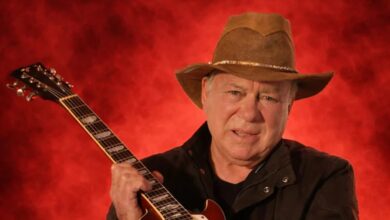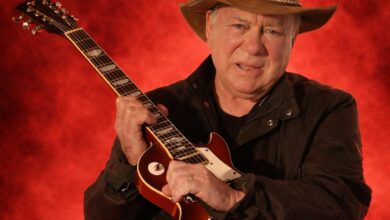Ace Frehley Dies at 74 — KISS Legend “The Spaceman” Passes After Brain Bleed

Ace Frehley’s final day unfolded amid a slow crescendo of alarms, rumors, and shaken silence. For years, the guitarist had been a legend—cofounder of KISS, the “Spaceman,” a figure whose riffs echoed across arenas and into countless bedrooms. Then, news broke that a fall in his studio had possibly triggered a brain bleed. He was placed on life support, developments were grave, and social media became a vigil. Last night, the family confirmed: Ace had passed away. The rocker, aged 74, was mourned globally.
The timeline now reads like a tragedy’s fractal. A stumble, at first deemed minor; a canceled tour, framed as medical necessity; then whispered updates of ventilator support and internal hemorrhage. How a veteran healthcare team checked every protocol. How fans held their breath. How journalists parsed every conditional phrase—“reportedly,” “sources say”—until the weight of confirmation arrived. We now see that the stages were measured and deliberate, each public step a reaction to unfolding private crisis.
This is more than a death announcement. It is a collision of rock mythology and human fragility. Frehley was a costume, a persona, a blast of sound—but he was also a man whose body betrayed him at last. That rupture between the immortal image and the vulnerable flesh fractures every expectation we carry for our musical icons.
The reaction has been immediate, cathartic and communal. Fans posted childhood concert tickets and dog-earred albums. Musicians talked of how Ace’s tone inspired their own early attempts. Cover bands shaped their setlists for tribute nights. On streaming services, “Shock Me,” “New York Groove,” “Cold Gin” surged in plays. In rooms across continents, people lit candles, picked up guitars, and whispered thanks.
Yet, even amid grief, the mechanics of verification matter. Before the official word, many outlets continued to hedge: was he alive? was he critical? was this just a rumor? In the chaotic interstice between life and death, the difference between “reportedly on life support” and “confirmed deceased” is everything. The transition from cautious reporting to obituary finality is itself a story about how modern media holds grief.
Ace’s legacy makes this especially weighty. He didn’t just play in KISS—he shaped its aesthetic, its sound, its persona. The lightning bolt, the cosmic makeup, the swaggering tone—it was part of his design. Every note he struck carried a mix of fire and wink. That persona, now silent, leaves behind a catalog of solos that feel like echoes of stray stardust.
Still, for all the spectacle, there was a quieter human story running underneath. Reunion tensions, solo travails, health setbacks—Frehley’s career was never a smooth arc. He walked miles in boots heavier than any stage lights. His public image was often whitehot, but backstage, he navigated the same mortality all of us do.
And so his final hours were fraught with decisions no musician should have to face. How long to keep support active? When is the tipping point from intervention to release? Who stands at bedside as lines blur between public legend and private beloved? Those are questions too raw to dramatize—they are the ones families silently carry while the world watches.
In the silence of confirmation, fans already began converting grief into ritual: sharing rare live cuts, swapping backstage shots, reconstructing histories with anecdotes. In forums and comment threads, someone types “thanks Ace for teaching me power chords,” someone else: “you made me believe rocks could fly.” In the temporal gap before tomorrow’s headlines, these small elegies matter.
Even as word circulates, new angles emerge in reporting: unreleased tracks, archival box sets, possible tributes, benefit concerts. Plans that once seemed speculative now feel inevitable. The industry leans toward memorialization, because in music culture, an artist’s death often triggers an excavation. Catalogues, demos, liner notes—everything that was background becomes foreground.
In the hush after the announcement, there’s a crude but essential lesson: celebrities age, bodies fail. The myth clarifies into frailty. For decades, Ace roared under spotlights and smoke; now, in that difference, we sense both loss and clarity. We are reminded that these icons are, after all, composed of organs, thresholds, and time.
Tonight, a guitar track will loop somewhere—perhaps “Shock Me,” or “Love Gun,” or “Beth.” Somewhere, a fan sits in dim light, replaying solos, hearing string bends, feeling the skip of memory. That is how legends die: not in silence, but in the afterglow of their own echo.
Ace Frehley is gone. But the distortion, the feedback, the tremolo—those remain, linger, persist. And in that persistence, a kind of immortality lives on.





